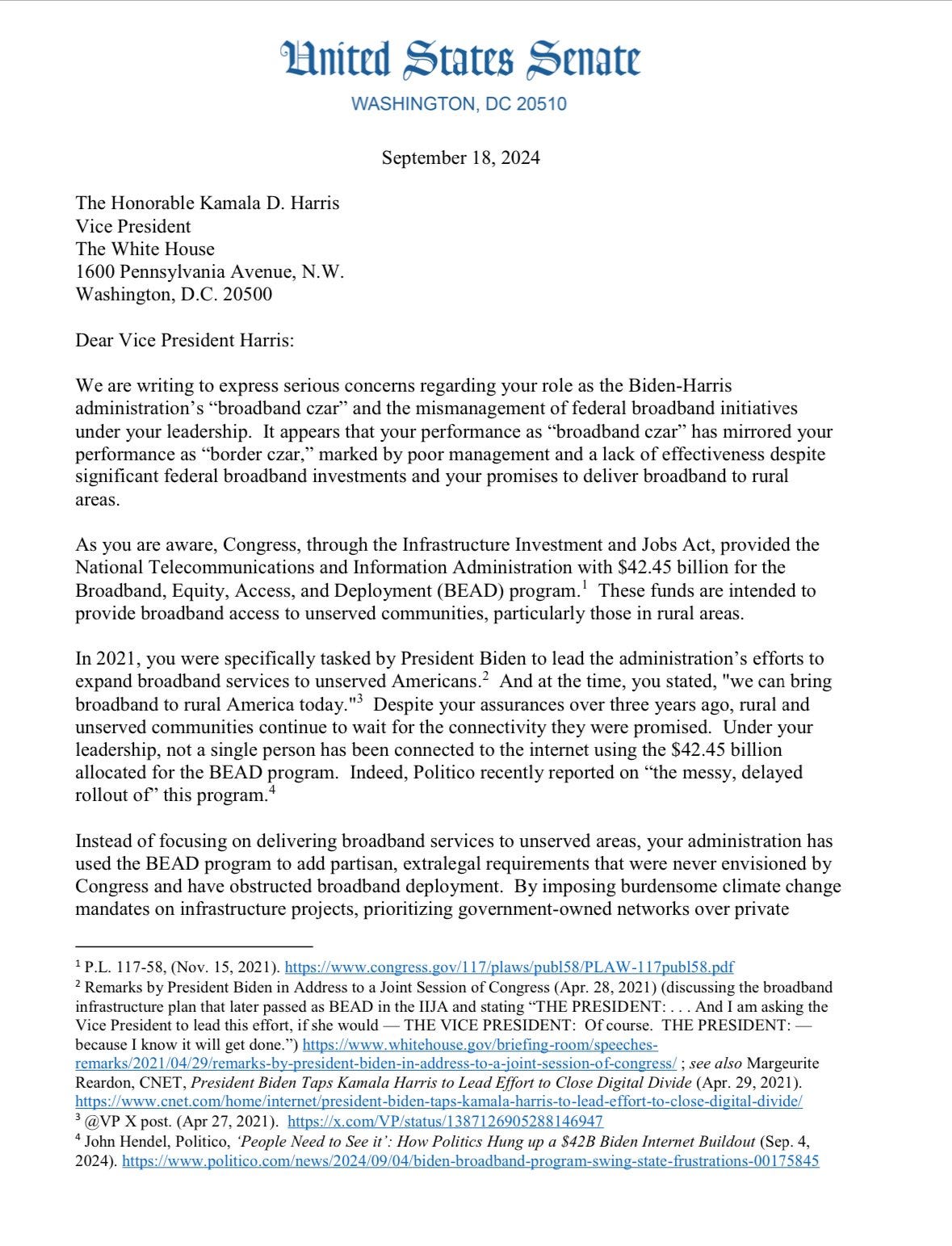Starlink Now Versus Bureaucratic Wait
The government could achieve their goal of universal internet access six years early.
In 2021 the Biden-Harris administration signed the Broadband Equity Access and Deployment Program authorizing $42.45 billion to provide universal high-speed broadband by 2030. Vice-President Harris was tasked to manage the program in 2021.
The Commissioner of the Federal Communications Commission, Brendan Carr, recently reported that over 1,000 days later not a single person has been connected.
Elon Musk launched Starlink with the first 60 satellites on his Falcon 9 rocket in May of 2019. Since then 7,022 satellites have been put into orbit with 6,346 operational. Starlink satellites make up over 60 percent of all active spacecraft in orbit. Today the Starlink satellites beam internet access to over 3 million customers in all 50 states.
Ask those without internet service who they would prefer: Starlink now or the government system at some unknown date in the future. By using Starlink the Biden-Harris administration could meet the goal of universal internet access six years early. Why not rely on space entrepreneurs that create value and abundances instead of bureaucrats and politicians that create scarcities and corruption.
This is actually a great time for innovation to transform a bureaucratic education system that has not changed much in 200 years. Peterson Academy is one of the leaders in creating a platform that avoids both wokeism and debt. Please sign up to enjoy our new course on The Economics of Human Flourishing.
We explain and empirically demonstrate why more people with freedom means much more resource abundance in our new book, Superabundance, available at Amazon. You can read more at superabundance.com. There has never been a better time to create more life.
Gale Pooley is a Senior Fellow at the Discovery Institute and a board member at Human Progress.









Great article Gale, well done. As one of the pioneers of consumer and commercial satellite technology, I have watched us go from one satellite with two channels in 1979 to the superabundance of Starlink. One of the prerequisites of superabundance is the freedom to innovate and produce, the freedom to harvest ones efforts and reinvest in your ventures, and the freedom from regulatory and financial repression, and centralized planning. It would be interesting to see on a global basis the correlation between abundance and free markets. I will be taking your course at Peterson Academy.
I am not sure that these systems are entirely comparable, but the point stands.
I never would have thought that, in my lifetime, we would have not hundreds, but thousands of satellites providing global internet access.
I imagine few thought that this was possible, but such is the power of progress.